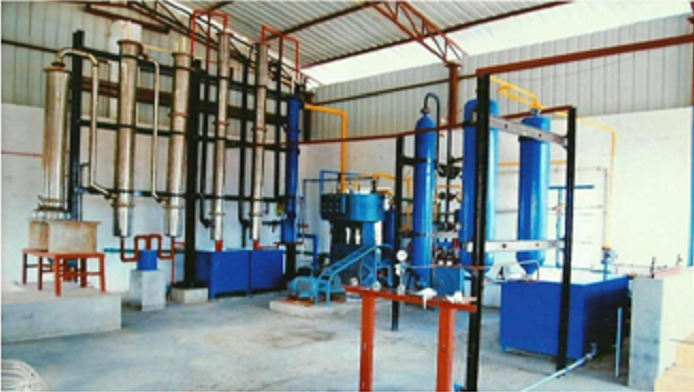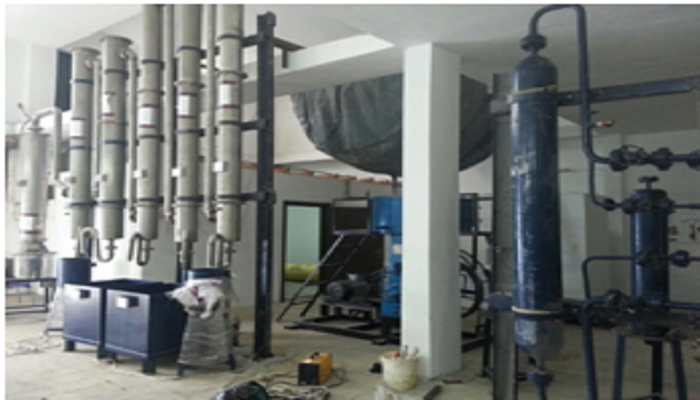- A-29, Industrial Area, Site IV,
Sahibabad, Ghaziabad, UP, India. - (+91-120) 2896063
info@bhartiyagroups.com

Safe and economical, our Nitrous Oxide plant are very safe with an efficient Generation system which reduces power consumption and adds on to safety. A storage battery assembly for separation of Nitrogen is another safety feature. The gas manufactured conforms to Indian Pharmacopia, US & European standards and is stored in liquid state which can be directly filled into cylinders.We supply variety of nitrous oxide plants, nitrous oxide gas plants, nitrogen gas plants, oxygen plants, acetylene gas plants, cryogenic gas plants, nitrous oxide gas plants India, securities systems etc.


Nitrous Oxide is produced by heating Ammonium Nitrate to a temperature of 250 Deg.c. Ammonium Nitrate is decomposed in the process to give a mixture of Nitrous Oxide &super heated steam. At the same time impurities are produced including Ammonium Nitrate fumes, Nitrogen & other oxides of Nitrogen. The steam & impurities are removed by scrubbing with water, caustic soda and sulphuric acid in sequence Nitrogen present in traces is removed by bleeding from the top of storage vessels where Nitrous Oxide is stored, after compression by a compressor.
Ammonium nitrate (even technical grade) is melted in a melter. The molten ammonium nitrate flows into a combustion pot where ammonium nitrate is decomposed according to the following reaction.
The reaction is ticklish and has to be controlled properly. If temperature of ammonium nitrate is allowed to go beyond a certain point then we do not yet yield. In our plant we almost get yield of reaction equal to 95% or even more. In practice, however, with N2O some other impurities are also obtained as products of combustion. There is some un decomposed ammonium nitrate, with its fumes. These are recovery in the primary scrubber. The steam in the hot gas is condensed in the first water scrubber and the entrained moisture and traces of ammonium nitrate get separated in the mist separator. The residual traces of ammonium nitrate, carbon dioxide and other oxides of nitrogen are removed in the caustic scrubber. Nitrous oxide as an oxide gas for atomic absorption in spectrophotometer and as fuel oxidant for racing vehicles.
The gas containing some nitrogen is then stored in the gas balloon. The gas is compressed with a compressor, dried in a drier and then refrigerate when it becomes liquid. Liquid nitrous oxide is stored in high-pressure storage vessel into cylinders and the gas is filled by weight. In a low pressure plant the gas after refrigeration is stored in a storage tank and from there it is filled in cylinders with a pump. Each batch is analyzed in the laboratory to ensure quality of the product and proper record is maintained.
| S. No. | Title | Value |
|---|---|---|
| 1 | Capacities | 8m3/hr-24m3/hr |
| 2 | Purity | Greater than 98% V/v N2O in Gaseous Phase |
| 3 | Acidity, Alkalinity | Under I.P. Limit |
| 4 | Arsine & Phosphine | Under I.P. Limit |
| 5 | CO2 | Less than 330 PPM |
| 6 | Co | Less than 10 PPM |
| 7 | No & No. 2 | Less than 10 PPM |
| 8 | Halogen and Hydrogen | Under I.P. Limit |
| 9 | Sulfice Oxidizing Substance | Under I.P. Limit |
| 10 | Water/Moisture | Under I.P. Limit |
| S. No. | Indian Standard | European Standard |
|---|---|---|
| 1 | 98% v/v N2O in gaseous phase | √Min. 98% pure (in gaseous) |
| 2 | <300PPM CO2 | √CO2 < 300PPM |
| 3 | <10 PPM CO | √CO < 5PPM |
| 4 | <2PPM NO NOx | √NOx < 2PPM |
| 5 | No PPM of H2O impurities only | √H2O < 67PPM |
| 6 | Chemical test |
Trauma, Child birth, Heart attack, etc.







